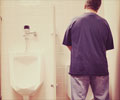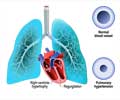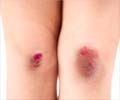- Desmopressin for nocturnal enuresis in children - (https://pubmed.ncbi.nlm.nih.gov/10796860/)
- Desmopressin - (https://medlineplus.gov/druginfo/meds/a608010.html)
- Desmopressin - (https://www.ncbi.nlm.nih.gov/books/NBK554582/)
- Desmopressin-Induced Severe Hyponatremia with Central Pontine Myelinolysis: A Case Report - (https://www.ncbi.nlm.nih.gov/pmc/articles/PMC5918148/)
- Water intoxication following desmopressin overdose - (https://pubmed.ncbi.nlm.nih.gov/9153915/)
Desmopressin Medication Information
Get detailed information on Desmopressin, including pronunciation, uses, dosage guidelines, indications, and instructions on how and when to take it and when to avoid it.
The updated prescription information on Desmopressin provides an overview of possible side effects, precautions, warnings, and storage tips.
You'll also find brand names used in india and internationally, along with pricing details. For further clarification, consult your healthcare provider.
Generic Name : Desmopressin Pronunciation : des moe press' in ICD Code : Y42 Therapeutic Classification : HormonesTrade Names/Brand Names of Desmopressin
India :
International :
DDAVP, Noctiva
Why is Desmopressin Prescribed? (Indications)
Desmopressin is used to reduce the symptoms of diabetes insipidus or water diabetes, a condition in which the body produces an abnormally excessive amount of urine.Desmopressin helps to treat bed wetting or nocturnal enuresis, a condition of passing urine during sleep at night.
Desmopressin also reduces the excessive thirst and the passage of large amount of urine that occurs after a head injury or a head surgery.
It is also used to treat hemophilia A (a genetic disorder that causes increased bleeding) and von Willebrand disease (a bleeding disorder that occurs due to low levels of clotting protein in the blood).
Desmopressin is a hormone which works by mimicking the action of vasopressin, an antidiuretic hormone which helps to balance the amount of water and salt in the body.
When should Desmopressin not be taken? (Contraindications)
Desmopressin should not be used in patients with-• Allergic to desmopressin
• Low sodium level in the blood or hyponatremia
• Severe kidney disease
• Heart disease (e.g., Congestive heart failure, Uncontrolled hypertension)
What is the dosage of Desmopressin?
Bed wetting or nocturnal enuresis:The recommended dose of desmopressin tablets for patients who are 6 years older and above can take 0.2 to 0.6 mg once daily just before bedtime.
The dose of desmopressin nasal spray is 1.66 mcg in patients who are under 65 years old and 0.83 mcg in patients above 65 years old or patients with a risk of low sodium level in the blood.
Diabetes Insipidus:
The usual dosage range in adults is 0.5 mL (2.0 mcg) to 1 mL (4.0 mcg) daily either directly into the vein (intravenously) or just under the skin (subcutaneously).
The recommended initial dose is 100 mcg 3 times/day can be taken mouth.
Hemophilia A and von Willebrand's Disease
The recommended dose is 4mcg/ml at a dose of 0.3 mcg /kg body weight diluted in sterile physiological saline and infused slowly directly into the vein (IV) over 15 to 30 minutes.
How should Desmopressin be taken?
Desmopressin comes as a tablet to take by mouth, with or without food.It also comes as a solution for injection to be administered by a healthcare provider into the vein or muscle.
Desmopressin nasal spray can be sprayed into the right or left nostril 30 minutes before going to bed.
What are the warnings and precautions for Desmopressin?
• Caution should be exercised in patients with history of kidney, heart, liver disease, high blood pressure, dehydration, fever, severe infection, vomiting, diarrhea, electrolyte imbalance, drowsiness, any allergy, who are taking other medications, elderly, children especially for children less than 6 years old, during pregnancy and breastfeeding.• It may cause dizziness, do not drive a car or operate machinery while taking this medication.
• It may lead to dehydration; drink adequate fluid.
• Patient may develop with infections, fever, vomiting or diarrhea; if it is so consult with your doctor.
What are the side effects of Desmopressin?
• Headache• Nausea
• Flushing
• Mild stomach pain
What are the other precautions for Desmopressin?
Avoid excess dosage.What are the storage conditions for Desmopressin?
• Store desmopressin tablets at controlled room temperature from 20°C to 25°C and in an airtight container.• Keep away from children.
• Store the liquid in the refrigerator, do not freeze it.


















